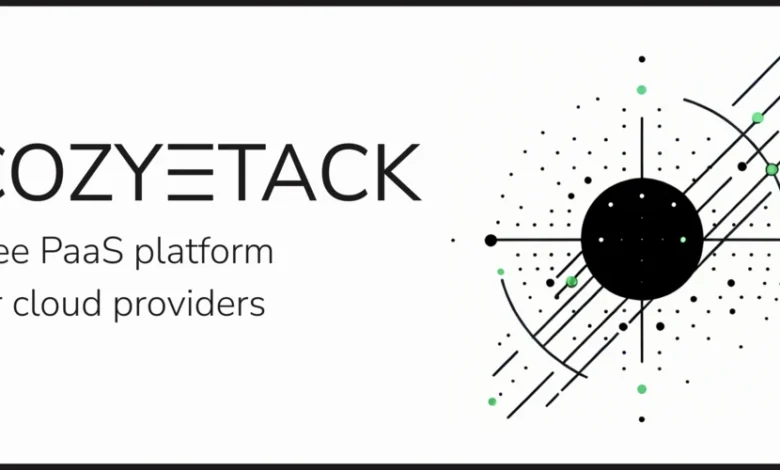Cozystack 0.20: The Latest Open-Source PaaS Platform Built on Kubernetes

The release of Cozystack 0.20.0, a free PaaS platform built on Kubernetes, has been officially announced. The project aims to provide a turnkey platform for hosting providers and a framework for building private and public clouds. The platform installs directly on servers and provides comprehensive tools to prepare infrastructure for managed services. With Cozystack, users can provision and run Kubernetes clusters, databases, and virtual machines. The platform code is available on GitHub and is distributed under the Apache-2.0 license.
Technology Stack
Cozystack uses Talos Linux and Flux Continuous Delivery (Flux CD) as its core technology stack. System images, including the kernel and required modules, are pre-generated and updated atomically. This eliminates the need for components like DKMS and package managers, ensuring stable operation.
Cozystack supports a straightforward installation process in empty data centers using PXE and the Debian-inspired talos-bootstrap installer.
Infrastructure Features
The platform includes robust networking and storage solutions:
-
Networking:
Cozystack features a free network fabric implementation built on Kube-OVN. It uses Cilium for service network orchestration and MetalLB to announce services externally. -
Storage:
Storage relies on LINSTOR, with ZFS as the foundational layer and DRBD for replication.
Additionally, the platform includes a preconfigured monitoring stack, featuring VictoriaMetrics and Grafana, to enable comprehensive infrastructure monitoring.
Virtual Machines Support
Cozystack uses KubeVirt to run traditional virtual machines directly within Kubernetes containers. This functionality integrates seamlessly with the Cluster API, allowing users to deploy and manage Kubernetes clusters inside a physical (“iron”) Kubernetes cluster.
Key Changes in Cozystack 0.20
Major Updates:
- Updated Kube-OVN to version 0.13.0.
- Improved KubeVirt Cloud Controller Manager (CCM) logic for more stable tenant-Kubernetes load balancers.
- Resolved user rights issues in OpenID Connect (OIDC).
- Introduced a dedicated group for cluster administrators.
- Fixed alerts and dashboards in Grafana.
- Enhanced NATS with jetstream support and additional configuration options.
- Added the ability to use Terraform for interacting with platform APIs.
OIDC and Keycloak Integration
Support for OIDC (OpenID Connect) was introduced in Cozystack 0.19, but due to ongoing efforts to stabilize the codebase, that release was not formally announced.
Cozystack 0.20 now includes Keycloak, which is pre-configured with the Cozy realm. This realm allows users to create local accounts and integrate with external OIDC providers seamlessly. Each tenant is provided with four default groups, and the tenant application can automatically generate a kubeconfig file for authentication via Keycloak.
The platform also offers a Keycloak Operator for automating “Keycloak as Code” configurations. Integration with Kubernetes clusters and dashboards is automatically configured.
Cozystack 0.20 marks a significant step forward for organizations seeking a robust, Kubernetes-based PaaS platform. With improved infrastructure, monitoring, and
In case you have found a mistake in the text, please send a message to the author by selecting the mistake and pressing Ctrl-Enter.
https://techplanet.today/storage/posts/2024/12/12/9ai9jZBA4iZE7B5xvf5BnECtqL39hG4xQ42JZD9w.webp
2024-12-12 13:52:00




